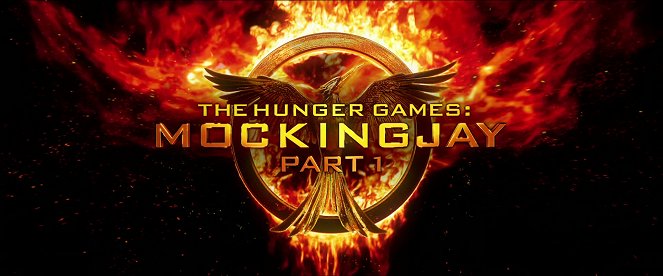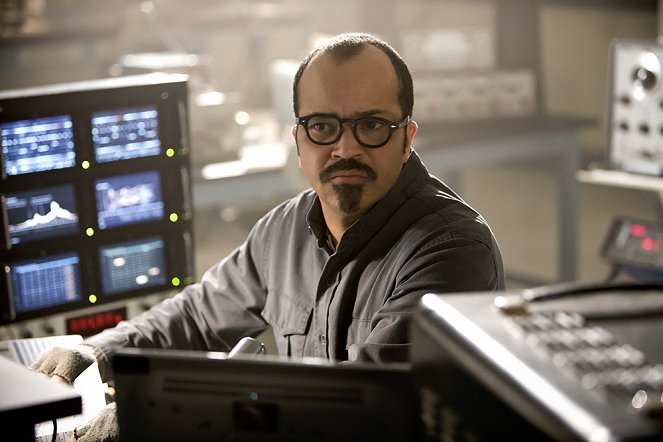Directed by:
Francis LawrenceCinematography:
Jo WillemsComposer:
James Newton HowardCast:
Jennifer Lawrence, Josh Hutcherson, Liam Hemsworth, Woody Harrelson, Elizabeth Banks, Julianne Moore, Philip Seymour Hoffman, Stanley Tucci (more)VOD (5)
Plots(1)
Jennifer Lawrence reprises her role as Katniss Everdeen in the third instalment of the sci-fi film series based on the novels by Suzanne Collins. In the aftermath of the 75th Hunger Games, Katniss finds herself in the underground District 13, struggling to adjust to her new life and role as the 'Mockingjay' in the rebellion against the Capitol and tyrannical ruler President Snow (Donald Sutherland). Meanwhile, her friend and fellow Games victor Peeta Mellark (Josh Hutcherson) is in the hands of the Capitol, where he is tortured and brainwashed. Katniss soon realises that to save the ones she loves she will have to join the revolt, led by President Coin (Julianne Moore), and become a symbol of hope for the rebels. With help from her friends and allies, including Gale Hawthorne (Liam Hemsworth), Haymitch Abernathy (Woody Harrelson), Effie Trinket (Elizabeth Banks) and Plutarch Heavensbee (Philip Seymour Hoffman), Katniss sets out to bring down the Capitol and President Snow once and for all. (Lionsgate Home Entertainment)
(more)Videos (28)
Reviews (13)
I'm quite pleasantly surprised. The story of the protagonist in the service of propaganda - the revolution is perhaps unnecessarily intimate (the third installment of a very successful series and there is almost no sign from the decor that it had a blockbuster budget), but it cleverly and amusingly rotates the concept of the Games themselves, because although even this time the cameras are on full time and broadcast for crowds of people, it's a completely different broadcast with a completely different goal. But propaganda also works on the other side, and for a while it is (within the genre) a very decent psychological massage, although, of course, there is no doubt who the good guys and the evil guys are. I have to highlight the scenes with the singing and destruction of the dam, and also the liberation of the hostages, because Francis Lawrence filmed them excellently, they have atmosphere, they are thrilling... And I hope the entire next film will be like that.
()
The first half of the last episode of The Hunger Games offers nothing but constant talking, preparation for the revolution, gathering courage and calm before the storm. Meanwhile, we will have to wait a year for a proper civil war and action before the second half premieres. Actually, it's more of a prequel. From a technical perspective, the film is not badly shot, the actors are very good and the dialogues are quite fine, but it is desperately boring and lacks action. Most of the time, you just wait for something to finally start happening, but you won't get see it, because the creators are saving it for the next film. In addition, the whole thing looks much cheaper than the previous two films. If nothing else, in the previous Hunger Games you could at least enjoy the grandeur of the gaming arena, the digital tricks, or at least the extravagant color stylization of the capital and its inhabitants. This is not the case with The Hunger Games: Mockingjay, as most of the story takes place in an underground bunker or in ruins, so the film is not only much more intimate, but also not very visually attractive. For the average viewer, or one who hasn’t seen the previous episodes, this is a waste of time. For fans of the series, the film only serves as a moving illustration of events that they already know from the book. And, of course, it doesn't make sense to tell them that the new Hunger Games is not worth it...
()
“Order shall be restored.” The next to last instalment of The Hunger Games is perhaps not the most elegant example of Hollywood storytelling – in the end, the whole film is an unfulfilled promise of something tremendous – but in terms of media self-reflection, it offers enough impetus to keep you thinking for many days after seeing it. Haunted by nightmares, Katniss gains inner peace not by finding a kindred spirit and actively taking control of the situation, but by accepting the media role that has been created for her. Using dresses, computer effects and fighting words, she transforms into an effective tool of revolution, a player in an artificially constructed reality, which she herself gradually stops perceiving as something alien, separate from the real world. She gradually accepts her role and the vocabulary of her creators and adapts her behaviour to the (omni)present camera and the interests of the revolution (“Don't shoot here. I can't help them”). Her position as a mere symbolic object is clear from the situations in which she passively finds herself and from the way the other characters relate to her (even in her presence, they speak of her in the third person and are primarily concerned with making her look good in promotional videos). Playing on emotions, the narrative is tailored to her spontaneous decisions, essentially making it impossible for her to exit the story. What she doesn’t realise is that her story mirrors that of Peeta, that she herself has become a cat dully chasing the light (perhaps a needlessly conspicuous metaphor, but also a quite clear indication that it is a mistake to approach the film as a standard genre flick). The making of the rebel and the selling of the revolution happens in parallel on two levels (in-text and outside of the text) and it’s as if the film gives us a look behind the scenes of its own creation. After a gripping action scene in an otherwise unusually unspectacular, slow and disturbingly quiet film, the same shots of the attack on the rebel hospital are repositioned in the context of a propagandistic “weekly” whose purpose is to manipulate the masses, just as we were manipulated (captivated by the spectacle) a moment before. The camera “journalistically” follows Katniss even in scenes where she is not filmed in the diegetic space. The blending of shooting styles leads to the further blurring of the line between propaganda for the people of Panem and for us. We can thus see the film’s ending, warning against the authentic with the artificially produced television broadcast intended to cover up what is happening in reality in the meantime, as the ultimate act of insincerity perpetrated by an industry built on a similar distortion of reality, or accept it as an ingenious rebellion carried out within the confines of a major-studio Hollywood narrative. However, the filmmakers could not have taken the liberty of launching a rebellion if it didn’t involve an adaptation of a bestseller capitalising on the demand for stories of defiance against the old order and whose multimillion-dollar box-office receipts are guaranteed in advance. 80%
()
(less)
(more)
Worse than the second film. Verbose, with very little action, and unnecessarily political. And there was all this fuss about it, even the new song by Lorde turned out to be unnecessary. It is incomprehensible how Jennifer Lawrence, compared to the excellently coherent and well-paced second installment, stumbled so badly and made a typically arrogant and tearful Hollywood shlock that lacks all the ingredients that made the second film a better one. A leap back to mediocrity with one single inventive moment – the chimney falling on the building.
()
It's not smarter than the previous parts in the series, just more talkative. It's not even fun. The story has disappeared, and the development of Katniss and Peeta's relationship, which held the first and second parts above water, is sidelined. I've never been a fan of Panem's world, and I really don't have anything to lean on here. Overall impression: 25%. It seems to me that the whole series mentally corresponds to the world of 12-16-year-old teenagers, and it is questionable whether this stretched filler can satisfy them...
()



Ads